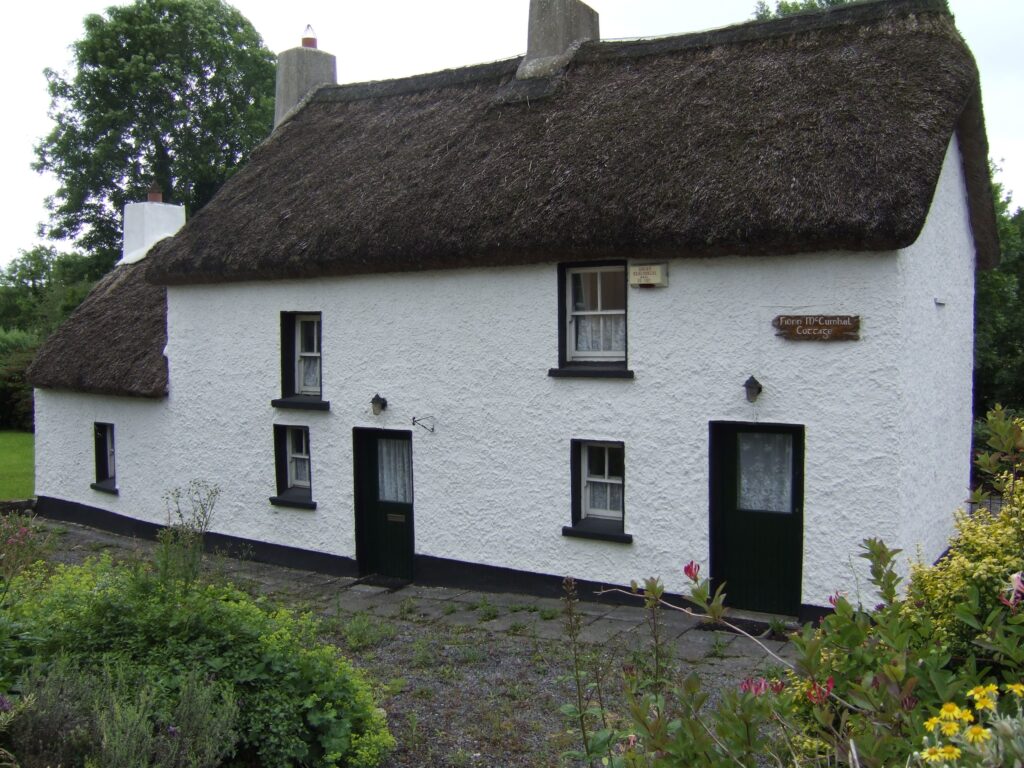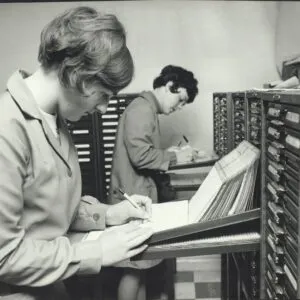The Digital Repository of Ireland (DRI) is delighted to announce the winners of the Community Archive Scheme 2025 are the Computers in Education Society of Ireland and the Donaldson ‘Tidy Towns’ Collection.
As a publicly funded repository for Ireland’s social and cultural data, DRI recognises the importance of ensuring that long-term preservation of digital materials is accessible to a diverse range of organisations or individuals, including those with limited or no funding. The creation of community-based archives often relies on the dedication, time, and expertise of individuals or groups working voluntarily or with minimal financial support.
As a result, digital records from community-led archives are often at a heightened risk of loss without proper digital preservation support to guarantee continued access over time. To address this, DRI provides associate memberships, along with all associated benefits, through our Ireland e-Government award-winning Community Archive Scheme. These memberships are offered for the duration required for a group to add their collection to the Repository.
With this in mind, it is our great pleasure to announce that the winners of the 2025 Community Archive Scheme are the Computers in Education Society of Ireland and The Donaldson ‘Tidy Towns’ Collection!

About the Computers in Education Society of Ireland
The Computers in Education Society of Ireland (CESI) has voluntarily supported ICT in Education in Ireland since 1973. CESI’s objective is to bring together constituents interested in leveraging technology to enhance teaching and learning experiences across all levels of education.
In the fifty years since its inception, CESI has adapted and moved forward in a speedily changing landscape. Technology has enabled the society overcome the twin barriers to participation (distance and time) and facilitated the development of a strong community online.
The Collection – CESI Newsletter Collection
As part of the Community Archive Scheme, CESI will ingest a collection newsletters detailing the organisation’s activities from the 1980s through to the early 2010s. It is hopes that the technological advancements, national events, professional development activities, and research documented in the newsletter collection will be of wider use to teachers, researchers, and all those interested in mapping ICT education in Ireland.
.
Of their Community Archive Scheme award win, CESI Chair, Kate Molloy said:
“As an open, convivial society we are so proud to have won the Digital Repository of Ireland’s Community Archive Scheme. It has long been our ambition to share the collection with our members and the wider public, and the support of the DRI will enable us to do so.
With recent, rapid advancements in GenerativeAI, it is well worth pausing to reflect on the past, and how Irish educators have navigated challenging times before. Personally, I’ll be quite excited to see each of our newsletters complete with a DOI and Creative Commons license.”
About the Donaldson ‘Tidy Towns’ Collection
Frank Donaldson was a national Tidy Towns adjudicator with the Department of the Environment for about ten years. During this time, Frank took a series of 1700+ images, including 19 individual towns and villages – with 74 images dating from approximately 2005 to 2007.
During the Tidy Towns process, adjudicators worked on their own without contact with anyone in the town or village being adjudicated. The adjudicator was required to write a detailed report of about four pages on each centre adjudicated. These reports considered each centre under about ten different headings such as Tidiness & Litter Control, Appearance of Approach Roads, Buildings, Natural Amenities, and Residential Areas.

During the individual town / village adjudication process, Frank Donaldson took many photographs as an aide-memoire for when he wrote up his final reports. It is these images that will make up the Donaldson ‘Tidy Towns’ collection. Using digital preservation technology, it should be possible for DRI to geo-tag these images, mapping the collection and displaying the information in an engaging and interactive manner for those interested in exploring Ireland’s towns and villages.
Of his collection, Frank Donaldson said:
“I am really pleased to have been chosen as a Digital Repository of Ireland Community Archive Scheme 2025 winner. My collection has a Tidy Towns orientation, and records important environmental and physical features photographed by me in fifty-one towns and villages in Ireland in the period 2005 to 2007.
Twenty-one counties of Ireland are included in this collection. Many of our Irish towns and villages are changing rapidly, and these images will provide a benchmark against which future change can be measured.”
This is the seventh cycle of the DRI Community Archive Scheme. DRI has been privileged to support the memory work of a diversity of community-led archives since its inception, including Folklore.ie, Tulsk History Society and Bray Arts; Cork LGBT Archive; the Asylum Archive; Cork Community Media Hub; the Elephant Collective; Dublin Ghost Signs; and Dublin-based Community Films by Joe Lee. The collection from folklore.ie will further expand and enrich the record of Ireland’s digital cultural heritage.
DRI Director Dr Lisa Griffith reflected on the two Community Archive Scheme awardees with the following:
“We are delighted to announce Computers in Education Society of Ireland (CESI) and the Donaldson ‘Tidy Towns’ Collection as awardees of the DRI Community Archive Scheme for 2025. Both collections showcase the diverse range of fantastic work being done by low- or volunteer-led organisations, and we are thrilled to offer associate membership along with all associated benefits to these extremely deserving organisations.
The interdisciplinary nature of the CESI collection will provide a boon for researchers and members of the public interested in the history of Irish education, the advances made in information and computer technology in Ireland, as well as community-building and communication strategies. The Donaldson ‘Tidy Towns’ collection showcases a labour of love for Irish towns and villages, with the photographs taken by Frank Donaldson capturing buildings and infrastructures that even now have changed or disappeared from view.
Digitally preserving these collections goes to the heart of what DRI aims to do – working with data and heritage organisations to safely preserve for the long-term information relating to Ireland’s arts, humanities and social sciences. Harnessing the latest in technology – such as geotagging – means these collections will be used and re-used by a variety of audiences.
We at DRI look forward to supporting CESI and Frank Donaldson throughout their ingest journeys.”
For more information about the DRI Community Archive Scheme, please visit our dedicated web page.
You can keep up to date with the DRI Community Archive Scheme and our collections by signing up to our newsletter.






